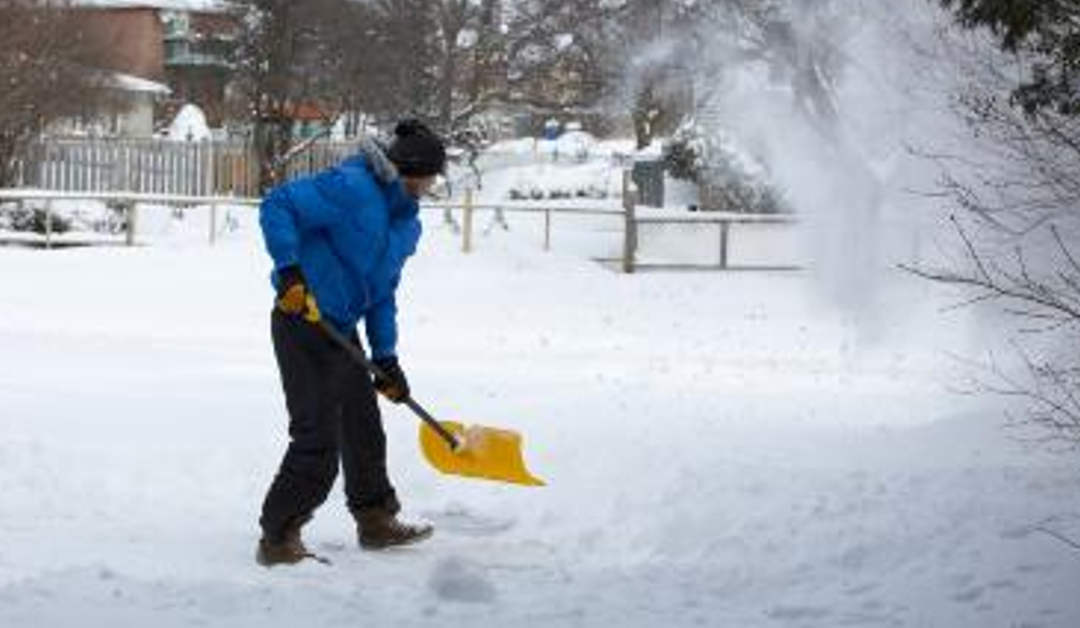With extreme cold temperatures in the forecast for much of the nation, it’s important to remember your heart health as you strategize how to stay safe and healthy in the cold.
The cold weather can pose unique challenges to cardiovascular well-being, requiring us to be proactive about protecting our hearts. Here are some practical tips for helping you do so.
Cold Truths: How Winter Weather Impacts Your Heart
One of the primary challenges in extreme cold is the constriction, or narrowing, of blood vessels. Cold temperatures can cause blood vessels to narrow, increasing blood pressure and putting extra strain on the heart. This phenomenon can be particularly risky for individuals with existing cardiovascular conditions, like high blood pressure, coronary artery disease, heart failure, or prior heart attacks.
Shoveling Snow: A Silent Threat to Your Heart
Much has been written about the risks of shoveling snow for those at risk of heart disease, and with good reason: it’s not uncommon to see heart attacks precipitated by the extremely strenuous activity of shoveling snow. Think about it: as mentioned above, your blood vessels are already narrowed due to the cold, which in itself puts a strain on your heart; then, you add a strenuous physical activity to this backdrop. In some cases, you will be asking too much of your heart.
So, who is at risk and should avoid snow shoveling?
If you’re over the age of 45 and have heart disease, high blood pressure (hypertension), a prior stroke, vascular disease, or suspect you may have any of these, you should avoid shoveling snow. If you’re 45 years of age or younger and have uncontrolled high blood pressure or heart disease (or a prior stroke), you should also put down the shovel. And if you’re not sure whether or not you fall into any of these categories or have any doubts about your physical fitness for this very strenuous activity, be sure to check with your doctor before picking up that snow shovel.
Want to learn more about how to protect your heart? Sign up for my newsletter.
Warming Up to Heart-Healthy Habits
Here are some more strategies for protecting your heart from extreme cold:
Stay Active Indoors: Exercise without the Chill
Instead of braving the freezing temperatures for outdoor workouts, it’s important to find ways to stay active indoors. Whether it’s dancing, yoga, or home workouts, maintaining physical activity is vital for cardiovascular health during the winter.
Layer Up: Protecting Your Core
Layering up isn’t just about staying warm; it’s a strategic move to protect your core. Wearing layers helps to trap heat close to the body, preventing excessive strain on the heart caused by cold-induced blood vessel constriction.
Mindful Shoveling: A Heart-Smart Approach
For those who aren’t at risk of heart disease while shoveling snow, it’s still important to take a heart-smart approach. Take breaks frequently, stay hydrated, and be mindful of your body’s signals about when to stop.
Fueling Your Heart: Good Nutrition Is Key
You still need to follow a well-balanced diet during the winter, and there are a number of winter fruits and vegetables that are fresh and delicious at this time of year. A diet rich in fruits, vegetables, and whole grains provides essential nutrients that contribute to overall cardiovascular well-being.
Hydration Matters: Beware of Winter Dehydration

It’s all too easy to become dehydrated during the winter, not least of all because we often tend to pay more attention to our hydration when it’s hot, not cold, outside. But cold air can be dehydrating, and adequate fluid intake is crucial for maintaining healthy blood flow and heart function. Aim for at least 6 to 8 glasses of water per day.
Winterizing Your Heart: A Seasonal Commitment
As you can see, winterizing your heart is a seasonal commitment that requires awareness, mindfulness, and proactive measures. By taking such measures, you can navigate the challenges posed by extreme cold and prioritize your heart health even as the temperatures plummet.
Best wishes, and stay warm!
Want more heart-health tips to keep your heart healthy? Subscribe to my newsletter.
You may also be interested in reading:

